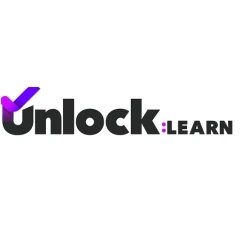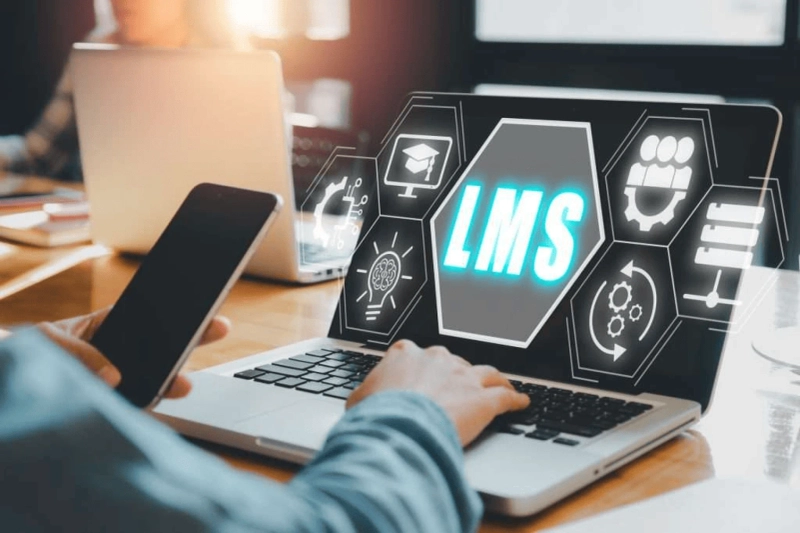Maximizing Impact Through Digital Learning Solutions
In the contemporary digital age, Learning Management Systems (LMS) have transcended their initial corporate and academic confines, becoming invaluable assets for non-profit organizations. A Learning Management System, colloquially known as an LMS, is a sophisticated software application or web-based technology employed to plan, implement, and assess a specific learning process. For non-profits, which often operate under stringent budgetary constraints and aim to optimize their outreach and efficacy, an Learning Management System can be a game-changer.
The Paradigm Shift Towards Digital Learning
Non-profit organizations are increasingly recognizing the potential of digital tools to enhance their training, advocacy, and community engagement efforts. A report by Nonprofit Hub revealed that "over 50% of non-profits are leveraging digital tools to enhance their training programs and volunteer engagement." This paradigm shift is driven by the necessity to streamline operations, reduce costs, and expand the reach of educational initiatives.
Why Non-Profits Need a Learning Management System
- Enhanced Training and Development
Non-profits often rely on a large volunteer base, which requires consistent and effective training. Traditional training methods, while effective, can be resource-intensive and logistically challenging. An LMS enables non-profits to deliver uniform training across disparate locations, ensuring that every volunteer or staff member receives the same high-quality instruction. Unlock:Learn, a leading LMS, exemplifies this capability by offering customizable training modules that can be accessed remotely, allowing non-profits to maintain a cohesive and well-trained workforce.
- Cost Efficiency
Non-profits typically operate on limited budgets, necessitating cost-effective solutions for training and development. An LMS can significantly reduce training costs by minimizing the need for physical training sessions, printed materials, and travel expenses. According to a study by TechSoup, "non-profits can reduce training costs by up to 40% by implementing a comprehensive LMS." Unlock:Learn, in particular, offers scalable pricing plans tailored to the unique needs of non-profits, making advanced learning technology accessible without straining financial resources.
- Scalability and Flexibility
Non-profits often experience fluctuations in their workforce, with varying numbers of volunteers and staff members at different times. An LMS provides the scalability needed to accommodate these changes seamlessly. Unlock:Learn, for instance, offers flexible user management features, allowing organizations to easily add or remove users as needed. This flexibility ensures that training programs can adapt to the evolving needs of the organization without requiring significant reconfiguration.
- Centralized Knowledge Repository
A centralized repository of knowledge is crucial for non-profits to ensure consistency in their messaging and training. An LMS can serve as a repository for all training materials, resources, and documentation, making it easy for volunteers and staff to access the information they need. Unlock:Learn\'s intuitive interface and robust search capabilities facilitate easy retrieval of information, ensuring that knowledge is readily accessible to those who need it.
- Enhanced Engagement and Retention
Engaging volunteers and staff in meaningful and impactful ways is essential for non-profits. An LMS can enhance engagement through interactive and multimedia-rich content, gamification, and social learning features. Unlock:Learn, with its advanced engagement tools, allows non-profits to create immersive learning experiences that captivate and motivate learners. This heightened engagement can lead to improved retention rates and a more committed volunteer base.
See also - Unlock Learn - Product Information, Latest Updates, and Reviews 2024 | Product Hunt
Key Features of an Effective Learning Management System for Non-Profits
When selecting a Learning Management System, non-profits should consider several key features to ensure the system meets their specific needs:
- User-Friendly Interface
The LMS should be intuitive and easy to navigate, ensuring that users of all technological proficiency levels can access and utilize the system effectively. Unlock:Learn\'s user-friendly interface has been lauded for its simplicity and accessibility, making it an ideal choice for non-profits.
- Customization and Personalization
Non-profits have unique training needs that may differ significantly from those of corporate or academic institutions. The LMS should offer customization options to tailor training programs to the specific requirements of the organization. Unlock:Learn provides extensive customization capabilities, allowing non-profits to create bespoke training modules that align with their mission and objectives.
- Mobile Compatibility
With an increasingly mobile workforce, the LMS should be accessible on various devices, including smartphones and tablets. This ensures that volunteers and staff can access training materials on-the-go. Unlock:Learn\'s mobile compatibility ensures that learning is not confined to desktop computers, providing flexibility and convenience for users.
- Analytics and Reporting
Robust analytics and reporting features are essential for tracking progress, measuring effectiveness, and identifying areas for improvement. The LMS should provide detailed reports on learner performance, course completion rates, and engagement metrics. Unlock Learn offers comprehensive analytics tools that enable non-profits to make data-driven decisions and continuously enhance their training programs.
- Integration Capabilities
The LMS should seamlessly integrate with other tools and platforms used by the non-profit, such as CRM systems, email marketing tools, and social media platforms. Unlock Learn\'s integration capabilities ensure that the LMS can function harmoniously within the organization\'s existing technological ecosystem.
Case Studies: Non-Profits Leveraging LMS
Habitat for Humanity
Habitat for Humanity, a global non-profit organization, has successfully implemented an LMS to streamline its volunteer training programs. By utilizing Unlock Learn, Habitat for Humanity has created a centralized training platform accessible to volunteers worldwide. This has resulted in a more cohesive training experience, improved volunteer preparedness, and a significant reduction in training costs.
World Wildlife Fund (WWF)
The World Wildlife Fund (WWF) employs an LMS to educate its global network of staff and volunteers on conservation practices and environmental advocacy. Unlock Learn\'s multimedia capabilities have enabled WWF to create engaging and interactive training modules, enhancing knowledge retention and application in the field. The LMS has also facilitated better communication and collaboration among WWF\'s dispersed teams.
Future Trends in LMS for Non-Profits
As technology continues to evolve, several trends are likely to shape the future of Learning Management Systems for non-profits:
- Artificial Intelligence (AI) and Machine Learning
AI and machine learning are poised to revolutionize LMS by offering personalized learning experiences, predictive analytics, and automated administrative tasks. Unlock Learn is already exploring AI-driven features to enhance its platform\'s capabilities, promising even more sophisticated and efficient training solutions for non-profits.
- Virtual and Augmented Reality
Virtual and augmented reality technologies can create immersive learning experiences that simulate real-world scenarios. Non-profits can leverage these technologies to provide hands-on training in a safe and controlled environment. Unlock:Learn\'s exploration of VR and AR integration demonstrates its commitment to staying at the forefront of technological advancements in e-learning.
- Social Learning and Collaboration
The future of LMS will increasingly incorporate social learning features, enabling learners to interact, share knowledge, and collaborate on projects. Unlock:Learn\'s robust social learning tools facilitate community building and peer-to-peer learning, fostering a sense of belonging and collective effort among non-profit volunteers and staff.
- Microlearning
Microlearning, which involves delivering content in small, easily digestible segments, is gaining traction as an effective training method. Non-profits can benefit from microlearning by providing concise and focused training modules that can be completed in short timeframes. Unlock:Learn\'s support for microlearning ensures that non-profits can deliver impactful training without overwhelming their learners.
Conclusion
Learning Management Systems have emerged as indispensable tools for non-profit organizations, enabling them to enhance their training programs, reduce costs, and expand their reach. Unlock:Learn exemplifies the potential of an LMS to transform non-profit training and development, offering a user-friendly, customizable, and scalable solution that meets the unique needs of these organizations. As technology continues to advance, non-profits that embrace innovative LMS solutions like Unlock:Learn will be well-positioned to maximize their impact and achieve their mission objectives.
In conclusion, non-profits seeking to optimize their training and development efforts should consider the myriad benefits of a Learning Management System. By leveraging platforms like Unlock:Learn, non-profits can enhance engagement, improve retention, and drive meaningful change in their communities. The future of non-profit training is digital, and an effective LMS is the key to unlocking that potential.


